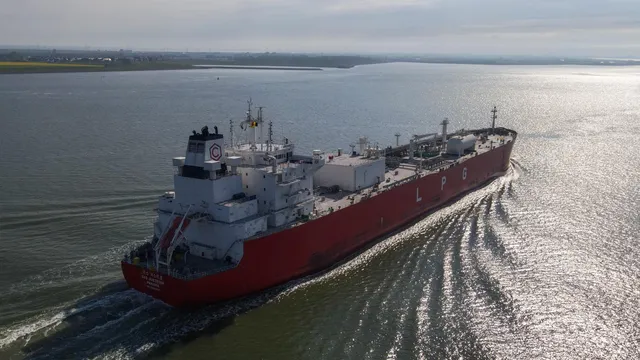Resource-poor Japan is seeking to strengthen its energy security by diversifying its resource supply, while remaining heavily dependent on oil imports from the Middle East.
Leading Japanese energy company JERA announced that it has signed an initial agreement to purchase liquefied natural gas (LNG) from a large-scale pipeline project in Alaska, after Tokyo agreed to increase purchases from the U.S. as part of a trade deal.
The company stated that it has signed a letter of intent with its American project developer Glenfarne “to advance negotiations regarding the purchase of LNG from the Alaska LNG project.”
Glenfarne, which is the lead company on the pipeline, clarified in a statement that the letter contains details about “the sale of one million tons per year of LNG from the Alaska LNG project for a period of 20 years.”
U.S. President Donald Trump presents the 1,300-kilometer (800-mile) pipeline as a means of producing LNG for shipment to Asia by tankers.
However, the long-delayed $44 billion project—which must overcome various complex technical challenges—is not expected to become operational before 2030 at the earliest.
The purchase of LNG from Alaska was mentioned in the Japan-U.S. trade agreement, officially signed last week.
A joint statement from the two countries noted that Tokyo is committed to “stable and long-term increasing purchases of American energy,” including “exploring a new supply agreement from Alaska” for LNG.
Glenfarne indicated that it plans a final investment decision on the Alaska LNG pipeline later this year and to finalize gas export commitments by 2026.
The announcement “from JERA and Glenfarne is another important step forward for the Alaska LNG project,” quoted U.S. Energy Secretary Chris Wright in both statements.
Resource-poor Japan is seeking to strengthen its energy security by diversifying its resource supply, while remaining heavily dependent on oil imports from the Middle East.
“Increasing supplies of American LNG, which is highly competitive, has the potential to diversify supply sources,” said Japanese government spokesperson Yoshimasa Hayashi at a press conference.
“Overall, this will be beneficial for our country, especially considering it can help secure and stabilize the resources we need,” he added. | BGNES


AloJapan.com